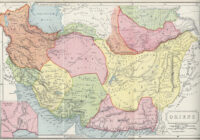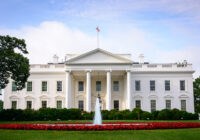Article 154 of its constitution requires Iran to support oppressed peoples. Palestinians continue to endure significant oppression. Thus, Iran stands with the Palestinian people and works to promote their liberation. (Encouragingly, an increasing number of Americans are also aligning themselves with the plight of the oppressed Palestinians.) Iran has thus supported Hamas, earning the ire of this Palestinian group’s arch-foe, the US-backed Israel.
Iran’s leadership demonstrates sagacity rather than acting capriciously. It has no desire to provoke an unnecessary war with Israel. However, when Israel assassinated senior Iranian officials in Damascus via an airstrike on April 1, 2024, Iran needed to respond. On April 14, Iran responded with a drone and rocket attack that targeted Israeli territory but caused no deaths.
In the aftermath of Iran’s attack, the US has made efforts to rein in Israeli Prime Minister Benjamin Netanyahu and prevent escalation. However, this endeavor has proven to be challenging. Netanyahu believes that the US Congress would compel the US to support Israel in a potential conflict with Iran. Presently, he finds himself surrounded by fellow hardline extremists who, like him, fail to recognize the shifting attitudes of the American populace towards Israel. Notably, among the younger generation of Americans, only 14% express sympathy towards Israel, a stark decline from 64% in 2023. These Americans are unwilling to commit to armed conflict or sacrifice their lives for Israel.
Once again, the US intervened to support Netanyahu, entreating Iran to permit a symbolic Israeli strike. Iran, of course, refused, but on April 19, Israel carried out an air strike in Iran’s Esfahan province. There were no casualties. For the moment, this seems to be the end of the exchange.
Netanyahu is cognizant that his political career is effectively over after the Israel–Hamas war, and thus his mandate as well, ends. He faces prosecution for personal corruption and mismanagement, particularly concerning dealings with Hamas. He thus has a personal incentive to prolong the war, perhaps banking on US intervention to safeguard Israel.
Should Israel or the US mount another offensive resulting in casualties or significant damage, hell would break loose in the Middle East. Such a war could destroy US influence in the region and even imperil the very existence of Israel.
A century of struggle and suffering in Palestine
Let’s back up a bit and consider why Gaza is such a sensitive topic for Iran.
In the early 20th century, Jews fled persecution in Christendom and migrated to Palestine. Palestinians initially welcomed them, providing sanctuary. Palestinian hospitality encouraged Zionist-minded Jews to settle in Palestine. By 1930, tensions escalated as the newcomers perpetrated violence against Palestinians. This violence peaked between 1947 and 1948, resulting in the ethnic cleansing of Palestinians known as the Nakba.
Related Reading
Since then, Israel, with the support of the US-led West, has continued to marginalize Palestinians and push them into smaller and smaller plots of land. Israel split Palestine into two territories: the larger West Bank in the east, and the tiny Gaza Strip, only 365 square kilometers, to the south. After Palestinians voted for Hamas in 2006, the militant group assumed control of the Gaza Strip. Israel (and Egypt) responded by blockading the territory, creating what is frequently called an open-air prison, with two million people crammed into an area the size of the US Virgin Islands (home to 87,000 people).
Since the outbreak of the present Israel–Hamas war in October 2023, Israel has not only killed over 34,000 people in its land and air assault on the Gaza Strip but intensified its blockade, at times even restricting the inflow of drinking water, and put the territory’s population on the brink of starvation.
Founded in a revolution against an oppressive secular government backed by Western powers, the Islamic Republic of Iran sees itself as the protector of the Islamic world against oppression and imperialism. For Iranians, Palestine is the prime case of a suffering Muslim people. So, naturally, whatever happens in Gaza reverberates in Iran.
Iran’s commitment to standing with the oppressed finds its origins in the nation’s majority Shia Islamic faith. Wherever Shia Muslims reside, they draw inspiration from Imam Hussein, a grandson of the Prophet of Islam, who sacrificed his life and those of his loved ones in defense of justice. “In the face of oppression,” Imam Hussein declared, “I choose to stand with courage and uphold the banner of justice.” Shias align themselves with the oppressed and advocate for justice. They do not discriminate based on race, religion, ethnicity, or any other criteria. Presently, Shias in Iran, Iraq, Lebanon, Syria, and various other nations unite in solidarity with Palestinians, even though most Palestinians are Sunni Muslims rather than Shia. What matters most for Iranians is solidarity with the Muslim community and with oppressed peoples across the globe.
Israel’s actions have provoked anger worldwide, even in the West. What is true in the rest of the world is true in Iran tenfold. Iranians are deeply angry. Yet it is a testament to the restraint and prudence of Iran’s leadership that it has so far not let this righteous outrage tempt it into a war.
Iran’s strategic calculations in the face of Israeli provocations
Although Iran rejects aggression, Israel nearly drew it into war anyway by striking its officers. On April 1, 2024, Israel breached Syrian and Iranian sovereignties by bombing the Iranian consulate compound in Damascus, Syria, resulting in the death of 16 individuals. Among the casualties were three senior commanders of the Islamic Revolutionary Guard Corps’s Quds Force — Brigadier General Mohammad Reza Zahedi, General Hossein Aminollahi and General Mohammad Hadi Haj Rahimi — and six other Revolutionary Guard members.
The US promptly announced that it had nothing to do with Israel’s bombing of Iran’s consulate in Syria. However, the US administration refrained from condemning it. As usual, its media empire repeated the US assertions by downplaying the Israeli assault on the consulate. Incapable of independent thought, the US and its media still keep persistently echoing Israel’s lies, propaganda and unverified rumors.
For years, Iran’s Supreme Leader has exercised patience in response to Israel’s provocations, including sabotage of its endeavors in Iran’s nuclear and missile programs as well as targeted killings of Iranian scientists and military personnel. Following Israel’s bombing of Iran’s consulate in Syria on April 1, military action was withheld initially, with Iran appealing to the UN Security Council to denounce the violations.
After the UN failed to condemn Israel, Iran’s Supreme Leader declared Iran’s intention to retaliate against Israel, approximately ten days before the attacks. Demonstrating an exemplary degree of responsibility, Iran issued a warning to Israel, the US, the UK, France, and other supporters, prompting them to prepare for defense. Approximately 72 hours before the attacks, Iran notified both its regional neighbors and Western powers of its imminent intentions. This deliberate choice allowed Israel and its allies time to prepare for defensive measures. Symbolically, Iran sought to showcase its capabilities to its adversaries while assessing their strengths and vulnerabilities.
On April 14, Iran executed its attacks on Israel utilizing outdated, sluggish drones and missiles. The journey spanned three to five hours before reaching their intended targets.
By international law and moral standards, Iran’s response was appropriate. Unlike Israel, which follows the Western model by indiscriminately targeting innocent men, women and children, Iran’s objective from the outset was to minimize casualties. Notably, the attacks resulted in no deaths and only one unintentional injury.
Through the operation, Iran successfully achieved its objectives. The strikes seriously damaged at least two Israeli bases, including the highly sensitive Nevatim Airbase, previously utilized by Israel to target Iran’s consulate. Notably, Israel’s purportedly top-tier defense infrastructure faltered during this operation. While British, French and other Western forces participated, the US conducted the bulk of the interceptions.
To Iranians, the attacks served as significant experimental endeavors. Remarkably, the financial cost to Iran amounted to less than $2 million, whereas its adversaries had to spend $3 billion to counter the attack. Perhaps more importantly, the exercise afforded Iran a deeper understanding of its adversaries’ capabilities.
On April 19, Israel launched rockets toward the nuclear facilities in Natanz, Esfahan province, Iran. Reports indicate that Iran intercepted all incoming projectiles, with some debris landing in Iraq. Iran has not retaliated.
The ever-pro-Israeli US press, led by The New York Times, sought to ignore or downplay Iran’s success and paint the exchange as a mere distraction. Americans should exercise discernment and not take such propaganda at face value. Instead, they should seek out independent sources, such as Fair Observer, for a more realistic perspective.
A call to reform US policy on Israel
It is time for Americans to shake off the passivity they have indulged for too long. The US, after all, is supposed to be a democracy. Yet a significant majority, exceeding 60% of Americans, disapprove of Israel’s actions in Gaza, while Congress approves $26 billion in more aid for Israel. To reclaim the nation’s integrity, Americans must conscientiously vote out representatives who support such allocations in future elections.
As an American committed to safeguarding the nation’s long-term interests, I advocate for constructive engagement with Palestinians to facilitate the cessation of Israeli colonization and the restoration of the Palestinian state. This endeavor should ensure equal rights for all Palestinian Christians, Jews and Muslims. Additionally, individuals of Jewish descent without historical ties to Palestine should be permitted to repatriate to their ancestral lands or other countries, provided they have not been complicit in crimes against humanity.
True Christians and Jews must actively follow their religious teachings by promoting brotherhood and peace. They must not permit political and religious demagogues to encourage or engage in atrocities such as those in Palestine in their names. Additionally, they should acknowledge that Israel is no friend of the US, but rather an adversary, one which has even fired upon the US Navy with apparent impunity.
Under President Joe Biden — a self-declared Zionist — achieving a peaceful solution in Palestine appears unlikely. Nevertheless, it remains certain that each individual will be held accountable for the suffering they cause, whether directly or indirectly, upon others. Before they are held accountable before God, let us hold them accountable at the ballot box, and perhaps save their souls or, at least, our own.
The views expressed in this article are the author’s own and do not necessarily reflect Fair Observer’s editorial policy.
Support Fair Observer
We rely on your support for our independence, diversity and quality.
For more than 10 years, Fair Observer has been free, fair and independent. No billionaire owns us, no advertisers control us. We are a reader-supported nonprofit. Unlike many other publications, we keep our content free for readers regardless of where they live or whether they can afford to pay. We have no paywalls and no ads.
In the post-truth era of fake news, echo chambers and filter bubbles, we publish a plurality of perspectives from around the world. Anyone can publish with us, but everyone goes through a rigorous editorial process. So, you get fact-checked, well-reasoned content instead of noise.
We publish 2,500+ voices from 90+ countries. We also conduct education and training programs
on subjects ranging from digital media and journalism to writing and critical thinking. This
doesn’t come cheap. Servers, editors, trainers and web developers cost
money.
Please consider supporting us on a regular basis as a recurring donor or a
sustaining member.
Will you support FO’s journalism?
We rely on your support for our independence, diversity and quality.














Comment